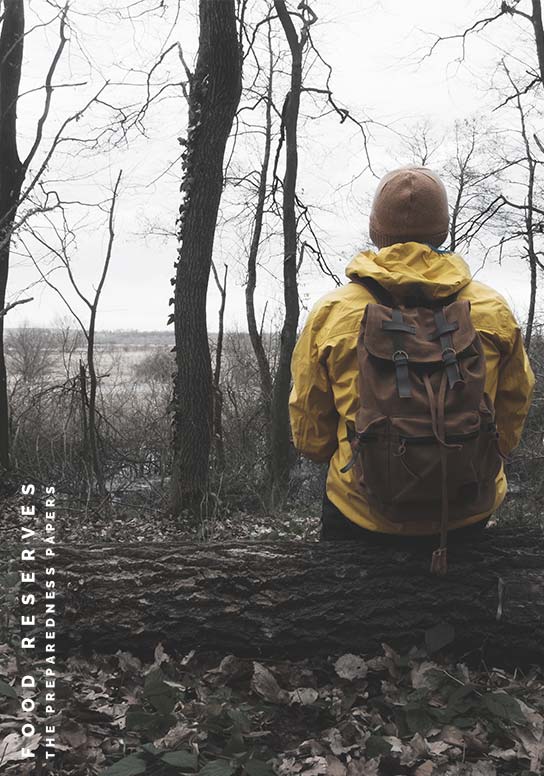THE PREPAREDNESS PAPERS
The information in the "Preparedness Papers" is FREE. Each "paper" has a PRINT button, so you can print and reference them "offline" as needed.


Fixed (dug in) caches of survival equipment are good, and the concept should not be abandoned, but there are some notable drawbacks in practice; some of which are: they are subject to rust, water damage and insects, they may be found and dug up by treasure hunters, they may be hard to locate because of changes in landmarks over the seasons, in winter they may be frozen in, someone may build a shopping center or road ever them, they are hard to haul out of the back country, they require periodic digging up and inspection and conditions may change so your caches are in the wrong location.
One way that a small group or family can overcome the above problems is to have a mobile cache. A mobile cache can be a car or truck, but a small 4x4 trailer is best because it can be towed by any vehicle or even pulled into the back country by man or animal power, if necessary. A trailer can be "dropped" and hidden in the woods or an abandoned building, leaving your vehicle free for other operations.
Once you have equipped your trailer, it should be located well away from any target areas and along your intended route of evacuation. The best location would be at the home of a member or reliable friend or relative who lives in a safe area, if this is not possible, you should be able to rent a garage or a corner of a farmer's barn. A few small ads in local papers should turn up some prospective storage locations, or an ad in Direction could turn up a member in the area you want to store in.
Each member should be sure his car is equipped with the proper sized trailer hitch and wiring to hook up to the trailer's lights and it would also be a good idea to have overload springs and/or heavy-dutyshocks on the rear. At times when the probability of a nuclear war or some other cataclysm is high,thetrailer could be moved by any member to a predetermined survival camp or retreat until it is needed, or until the threat has passed. It would be a good idea to install an anti-theft alarm system on the trailer and periodic inspections and road tests would also be advisable. If security is a problem the trailer could have three or four locations and be moved from one to the other like the proposed "MX" missile. What follows is a general outline of equipment you should have on or in your trailer:
Every small trailer that I have seen parked behind a business has had one wheel removed and stored separately. The axle has been propped up on a concrete block. You also see generators, welding rigs, and tool carts treated this way at construction sites. The lack of a wheel makes it awfully hard for someone to tow the whole trailer away! Also, consider a small camouflage net to cover the trailer when parked in a wooded area.
By accepting you will be accessing a service provided by a third-party external to https://foodreserves.com/